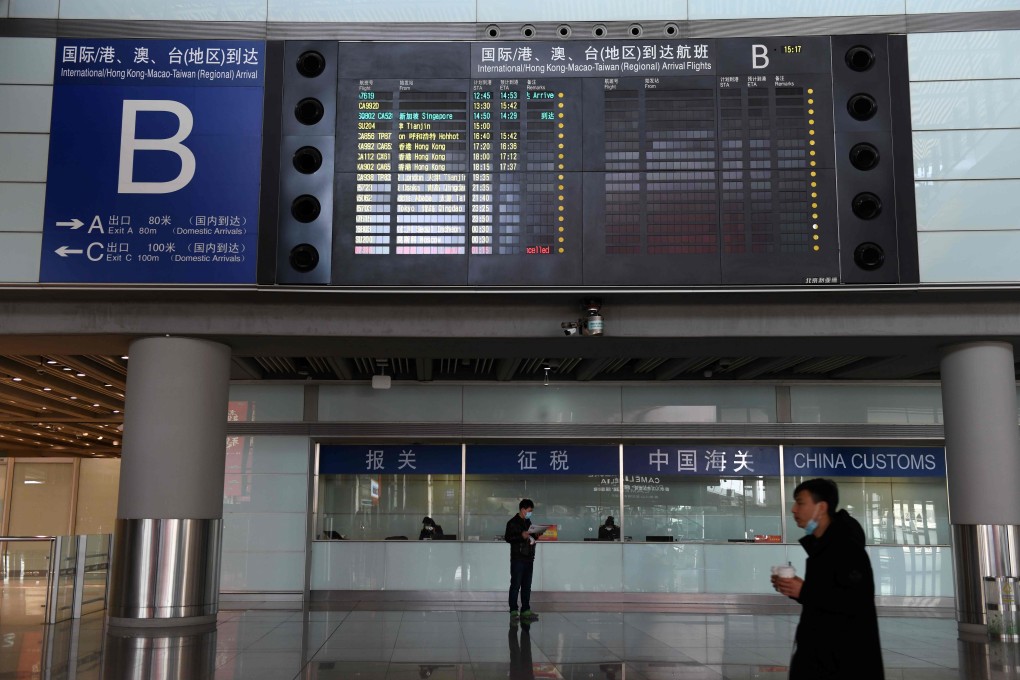Coronavirus: Beijing’s ban on foreign travellers comes into force months after it criticised other countries for ‘isolating China’
- Move may be necessary to stop Covid-19’s return, but some say Beijing should acknowledge that it was wrong to attack nations that banned arrivals from China
- Almost all foreign visitors will no longer be allowed to enter the country and international flights face severe restrictions

China’s comprehensive ban on foreign travellers comes into force on Saturday as the country wraps up its two-month battle to contain Covid-19.
But two months ago Beijing attacked other countries’ travel bans for “creating panic” and its latest move has been described as understandable but inconsistent.
“China’s decision is understandable given the dangers of a second wave of infections but next time, when other countries take action to protect themselves, Beijing might be more restrained in its criticism,” Richard McGregor, a senior fellow for East Asia at the Lowy Institute in Sydney, said.
“At the time, Beijing accused other countries of everything from overreacting to borderline racism. That was wrong, and it would be good if they acknowledged that rather than always claiming to occupy the high moral ground.”
Beijing has pressured a number of countries to remove restrictions on travel from China. After Italy cut off direct flights in early February, Qin Gang, deputy minister of foreign affairs, met Italy’s ambassador to China Luca Ferrari to express “strong dissatisfaction” and urged Italy to reverse the decision “as soon as possible”.